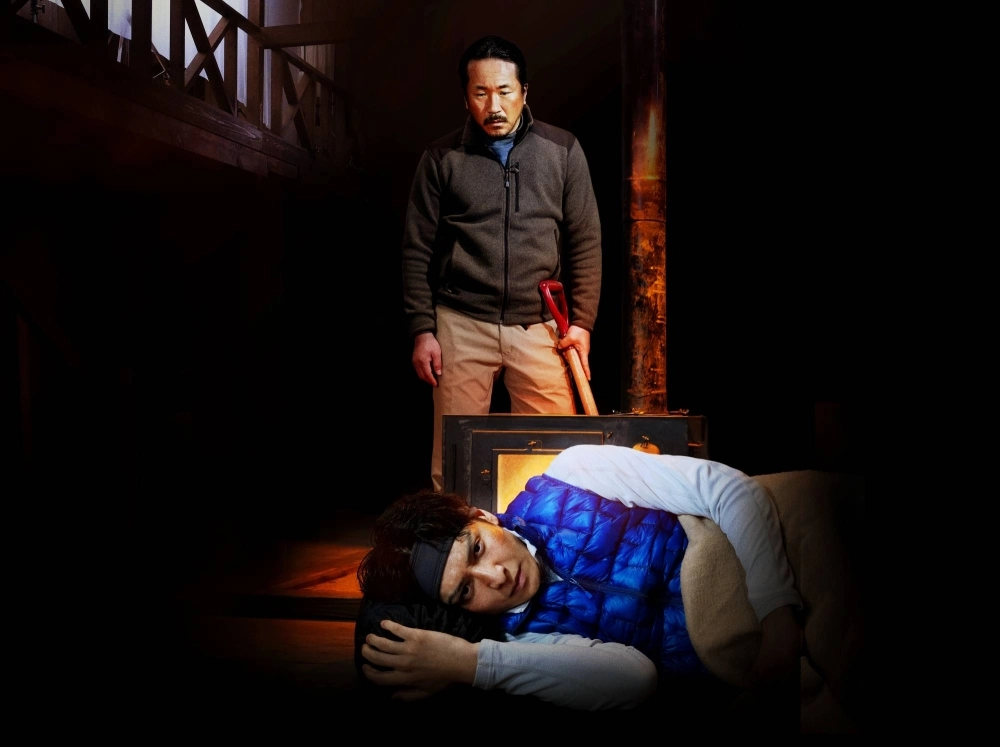Keisuke Asai (Toma Ikuta) and Ryu Ji-yong (Yang Ik-june) are old college friends on an annual pilgrimage to the mountain where their hiking buddy, Sayuri (the single-named Nao), disappeared 16 years earlier. When they get caught in a snowstorm and Ji-yong sustains a serious leg injury, he makes what he presumes will be a deathbed confession, admitting that he murdered the woman they’ve been mourning for all these years.
But wait! The blizzard subsides to reveal a mountain lodge nearby, and Keisuke drags his companion to safety. With no prospect of outside help coming anytime soon, they hunker down for what looks set to be a long night. Further complicating matters, Ji-yong is already showing signs of confessor’s remorse, while Keisuke struggles with a debilitating case of altitude sickness.
The two men quickly move from tense, paranoid exchanges to a rough-and-tumble game of cat-and-mouse, in which Yang also acts circles around his prey. Ikuta gives the kind of over-expressive performance that tends to play better in TV dramas, but his South Korean counterpart’s seething intensity comes from a deeper — and darker — place.


















With your current subscription plan you can comment on stories. However, before writing your first comment, please create a display name in the Profile section of your subscriber account page.